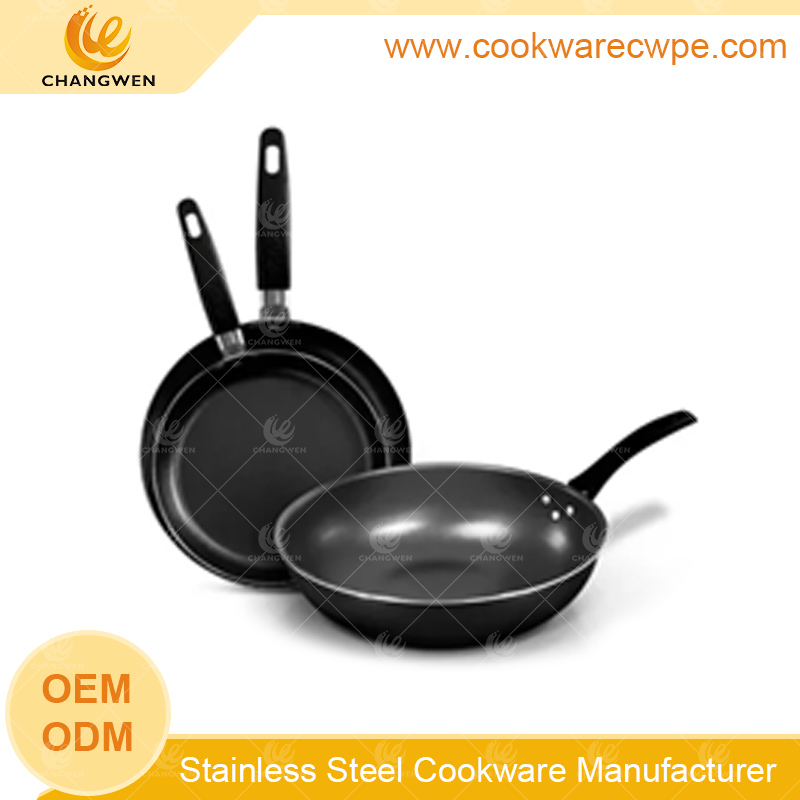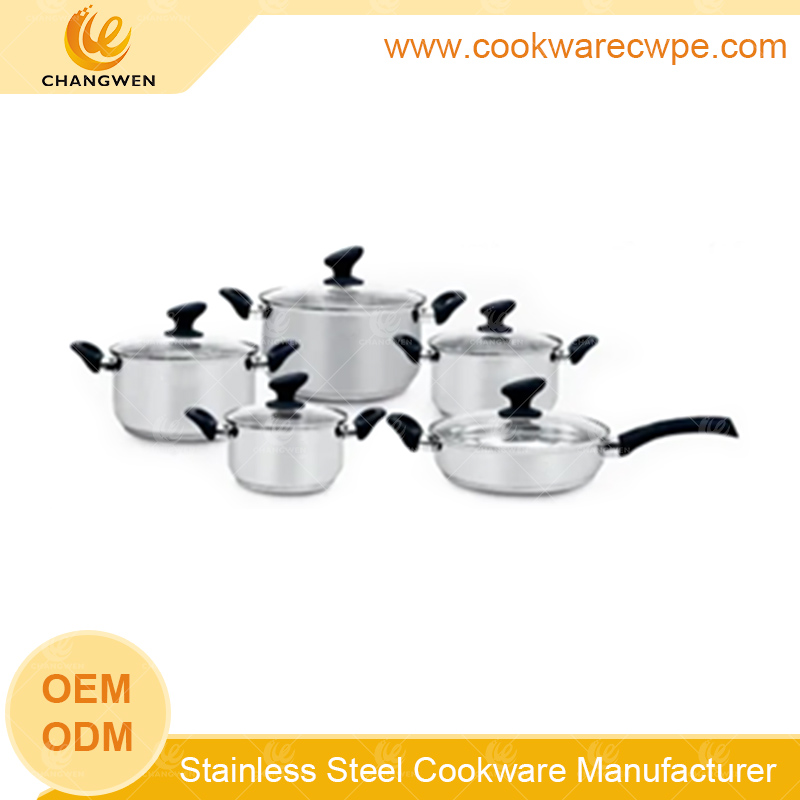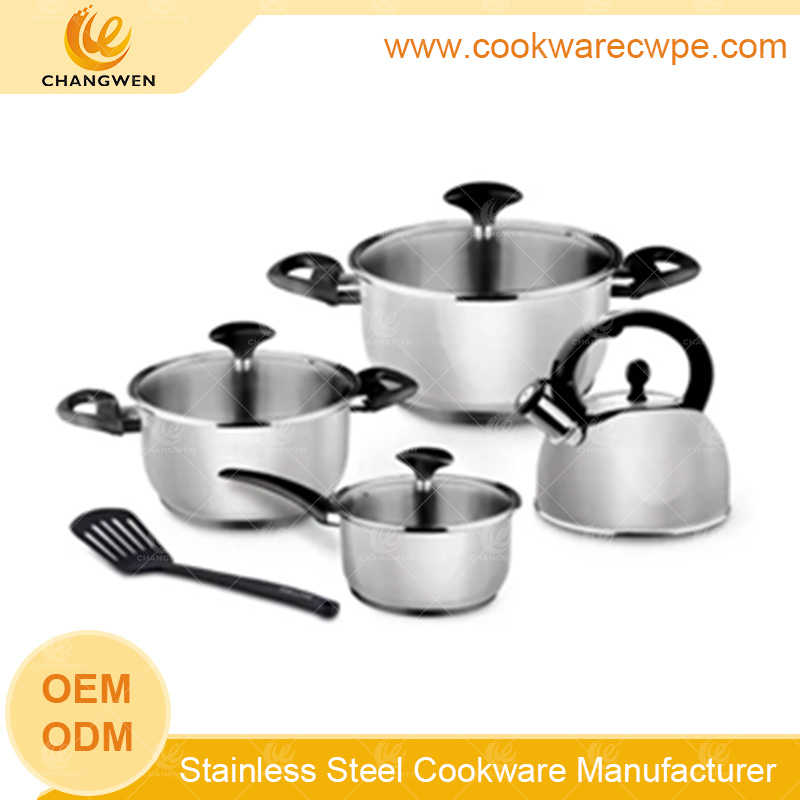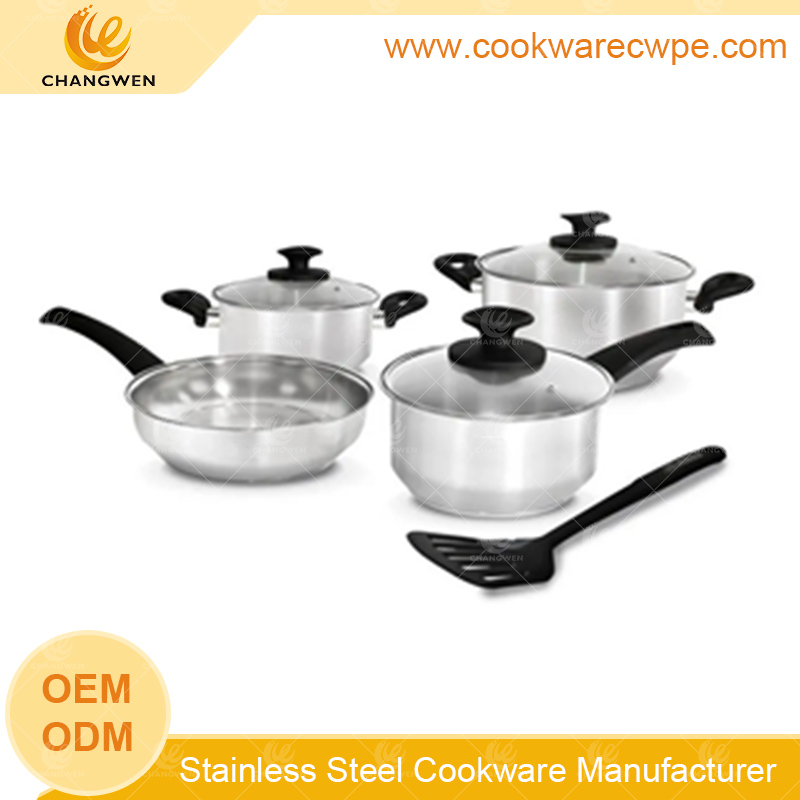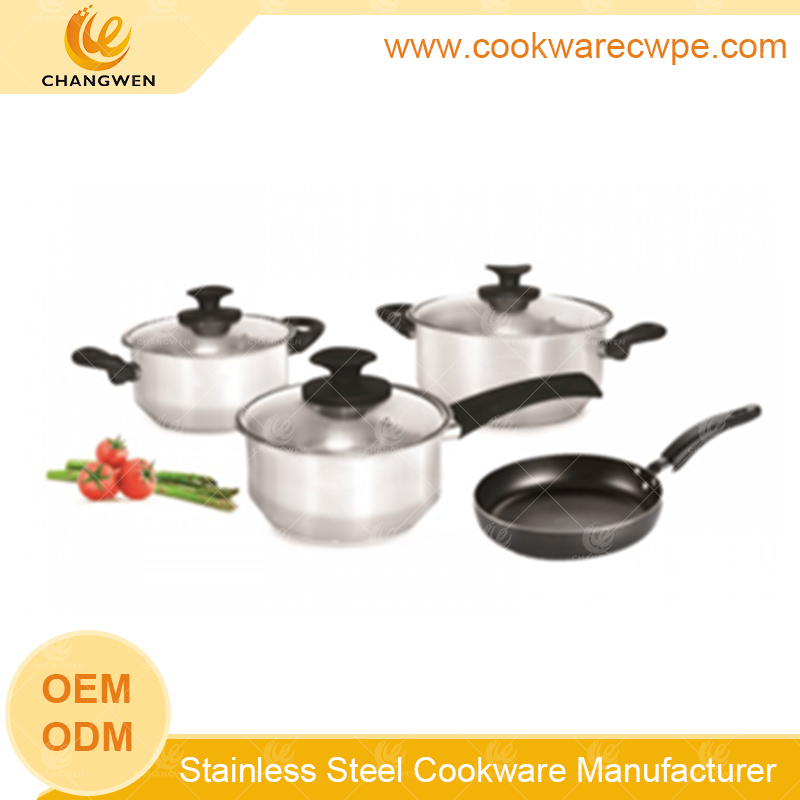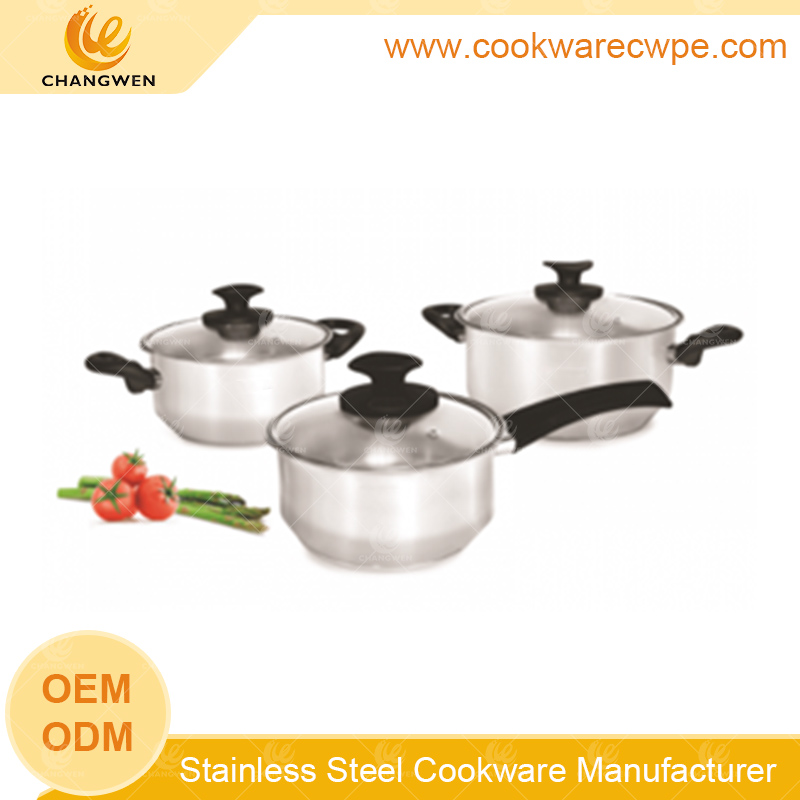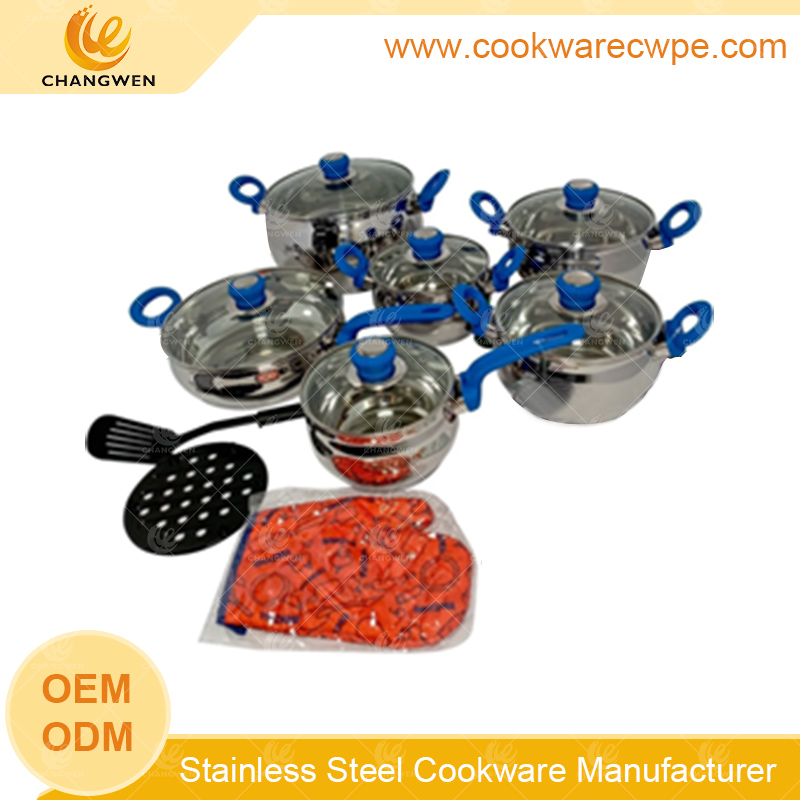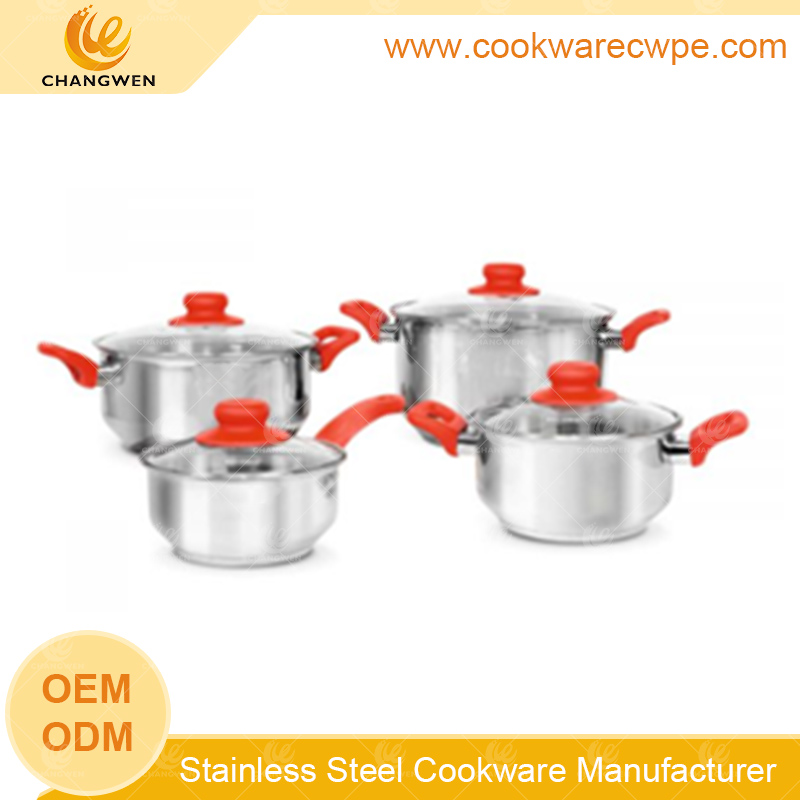Blog & News
We pay attention to the latest news on the product trend of kitchen utensils and continue to develop new products suitable for the market
What Cookware Is Best for Gas Stoves? A Comprehensive Guide
Views: 122 Author: China CHANGWEN Cookware Publish Time: October 13, 2023 Origin:https://www.cookwarecwpee.com
Introduction
If you are a cooking enthusiast, you know the importance of the right cookware paired with the right stove. For gas stoves, the most important thing is to choose cookware with good heat conductivity to cook delicious dishes.In this comprehensive guide,we will explore the top options and provide expert advice to help you make informed decisions. Let’s dive in!
Types of Cookware Suitable for Gas Stoves
Cast Iron
Cast iron cookware is a favorite among gas stove users because of its excellent heat retention and even distribution. It can also have a non-stick surface. If properly cared for, cast iron can last a lifetime. However, its maintenance will be more troublesome than other types.
Stainless Steel
Stainless steel cookware is known for its durability and resistance to high temperatures. Stainless steel pots and pans with a thick base will perform well on a gas stove.
Carbon Steel
Carbon steel cookware heats up quickly and has good thermal conductivity. Its wide applicability and good thermal conductivity make it a fantastic choice for gas stoves.
Aluminum Cookware
Aluminum Cookware is also a fantastic choice for gas stoves. It is suitable for daily cooking tasks. However, avoid cooking acidic foods when using aluminum cookware.
Non-Stick Cookware
Non-stick cookware effectively prevents food from sticking while being easy to clean. Non-stick pots and pans with high temperature resistant coating can be used on gas stoves.
Ceramic Cookware
Ceramic cookware is safe to use on gas stove. They are suitable for a variety of cooking methods, especially slow cooking and simmering.They can add a unique flavor to your ingredients.
Enamel-Coated Cast Iron Cookware
Enameled cast iron cookware combines the advantages of enamel and cast iron, making it both a good heat conductor and easy to clean.
Copper Cookware
Copper is a good conductor of heat, allowing for precise temperature control. Therefore, copper cookware is a ideal choice gas stoves as well. However, copper can react with certain foods, which means that it may be harmful for you.
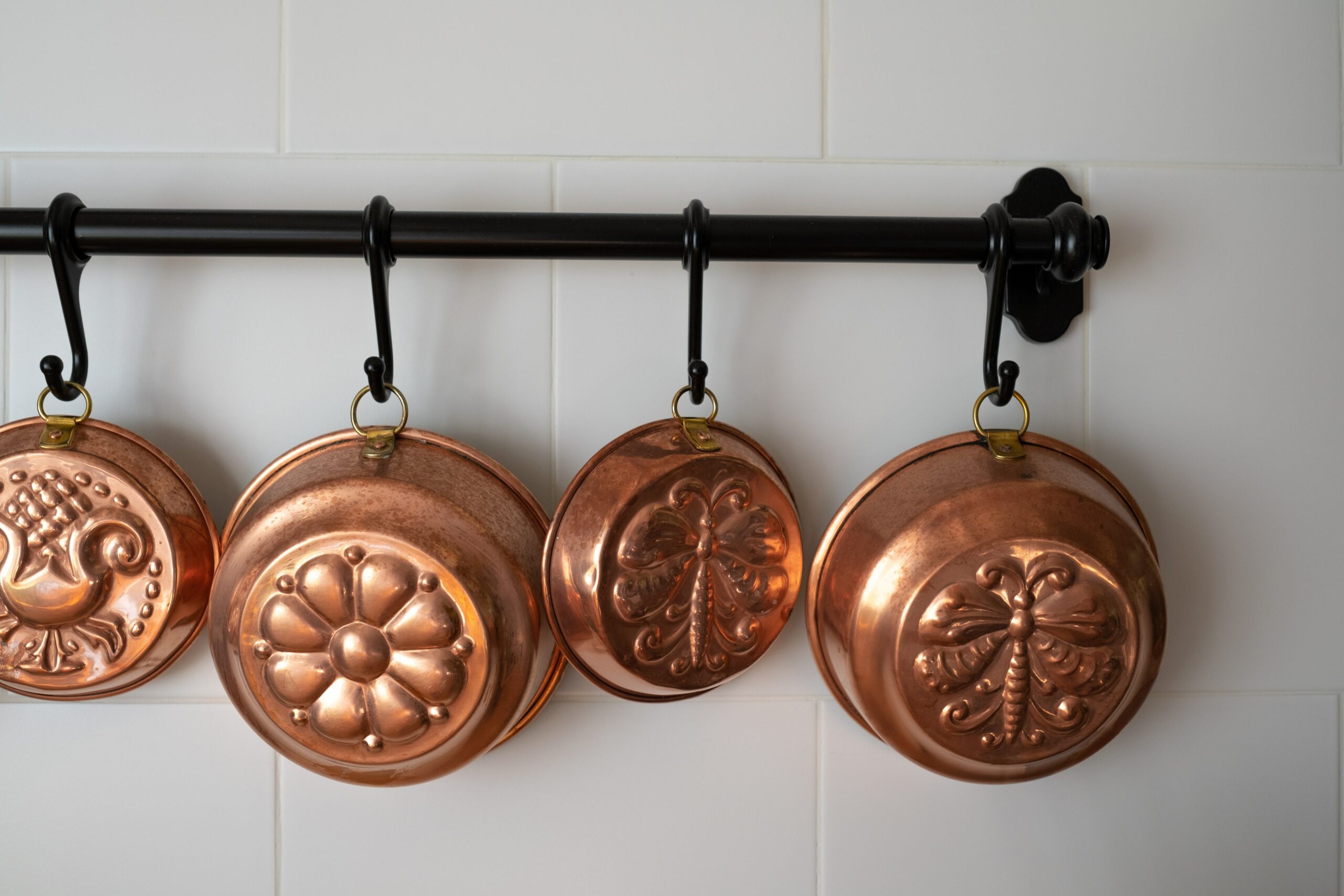
Pros and Cons
Here is a table for pros and cons of each material
| Material | Pros | Cons |
| Cast Iron | Heat preservation, Non-stick, Durable | Heavy, Require maintenance |
| Stainless Steel | Even heat distribution, Durable, Non-reactive | Sticking |
| Carbon Steel | Lightweight, excellent heat distribution | Requires seasoning, Can be rusted |
| Aluminum | Heats up rapidly, Lightweight, cost-effective | Reacts with acidic food |
| Non-Stick | Non-stick | Coatings that are not resistant to high temperatures will deteriorate at high temperatures. |
| Ceramic | Non-Stick, Easy to clean | Less efficient for heat distribution |
| Enamel-Coated Cast Iron | Non-reactive to acidic foods, Withstand high temperature | Heavy, Expensive |
| Copper | Allowing for precise temperature control | Reacts with certain foods |
Key Points to Look for in Cookware
Here are some features you must consider when you want to choose a set of pots and pans suitable for gas stoves.
Base Thickness
Cookware with thick and flat bottom helps you in even heat distribution.
Handles
Ensure the handles you are looking for is securely attached to the cookware, easy to grab and stayed cool. Handles that stay cool are a bonus for chefs safety.
Weight
Heavier cookware tends to conduct heat better. If you prefer lightweight, aluminum cookware will suit you better.
Lid
The lid should fit snugly into the cookware to retain maximum heat and moisture. The transparent lid allows chefs to better control the cooking process.
Compatibility
If your kitchen has a dishwasher, invest in a set of dishwasher-safe pots and pans.
Pouring Spouts
Boiling hot soups can be potentially dangerous. Cookware with pouring spouts allows for safer use and less waste.
Price
Choose according to your own budget. If you have a large budget, you can choose from a wide range of options. If you have a small budget, you should choose something more cost-effective.
Maintenance and Care
Different materials require different methods. The following is a brief introduction table.
| Material | Maintenance method |
| Stainless Steel | Avoid using bleach or ammonia |
| Cast Iron | Requires seasoning and cleaning with hot water |
| Non-Stick | Avoid scratching the coating with metal utensils |
| Aluminum | Wash with warm soap by using soft cloth or sponge |
| Carbon Steel | Wash with warm water. After drying is complete, add drops of vegetable oil to the surface of the cookware and wipe it clean. |
| Ceramic | Wash with a sponge and warm soapy water |
| Copper | Requires regular polishing to maintain its luster. |
FAQs about Cookware for Gas Stoves
Q1:What Types of Cookware are Best for Gas Stove Cooking?
The best types of cookware for gas stove include made of stainless steel, ceramic, copper, cast iron.When choosing, you should choose flat and thick bottoms.They can helps in even heat distribution and prevents hot spots.
Q2:How Do I Choose the Right Size of Cookware for My Gas Stove?
Choose cookware that matches the size of your burner. If it is too large, it will cause uneven heating, and if it is too small, it will cause overheating.
Q3:What About Induction-Ready Cookware on Gas Stoves?
Induction-ready cookware can be used on gas stoves, but not all gas stoves are compatible with induction-ready cookware.When purchasing, pay attention to the label.
Q4:Can I Use Glass Cookware on a Gas Stove?
If you want to use glass cookware on a gas stove, you need to carefully read the instructions written by the manufacturer to see if it is suitable for use on the gas stove and what precautions should be taken when using it.
Q5:Can I use any cookware on a gas stove?
The following two types of cookware should not be used on gas stoves: thin aluminum cookware and non-stick cookware with damaged coatings.
Conclusion
Choosing the right cookware for your gas stove is crucial to your cooking. Carefully consider factors such as material, price, thermal conductivity, compatibility, etc. when choosing.
 English
English Español
Español
